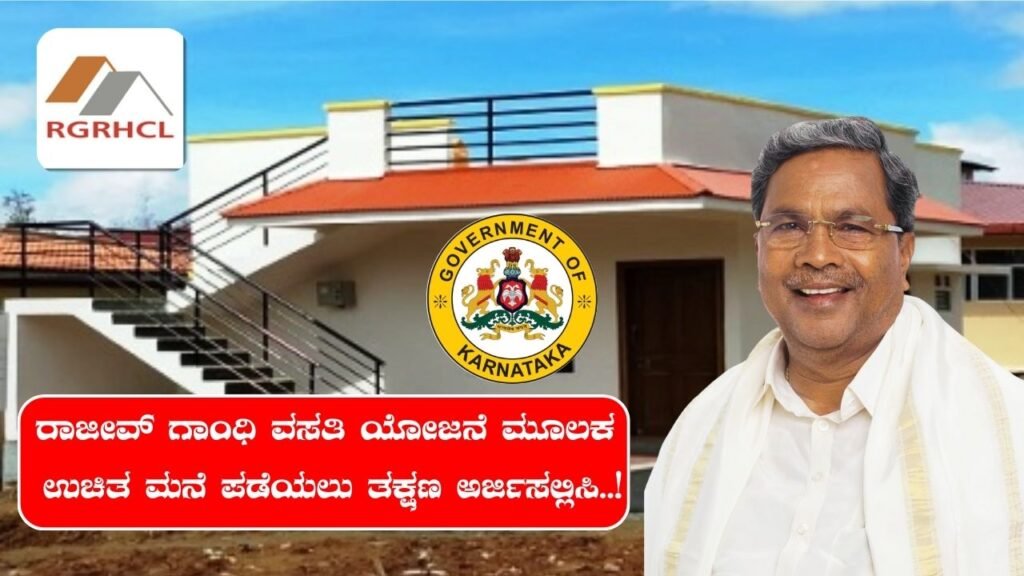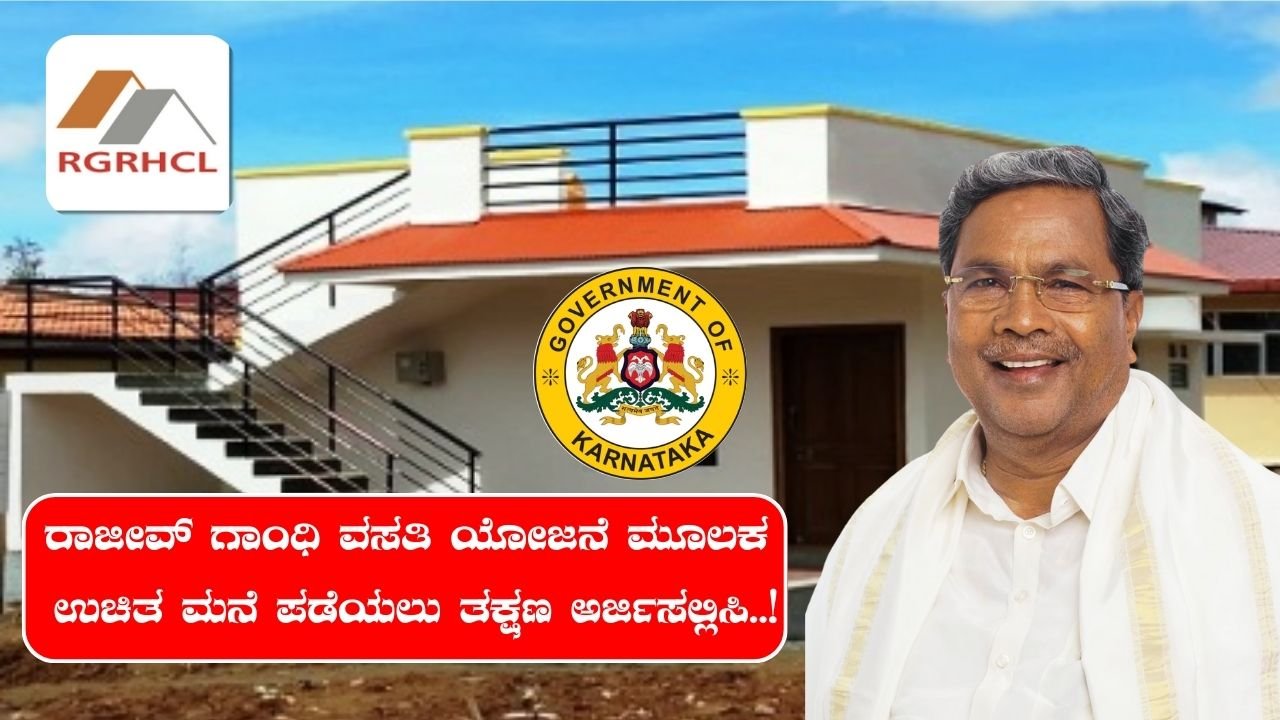Introduction:
The Rajiv Gandhi Housing Scheme, officially known as the Rajiv Gandhi Rural Housing Corporation Limited (RGRHCL), is a pivotal initiative by the Government of Karnataka aimed at providing affordable housing to the state’s economically weaker sections (EWS). Established in 2000, RGRHCL serves as a Special Purpose Vehicle (SPV) to implement various housing schemes under both state and central government programs .

Objectives and Vision
The primary objectives of the Rajiv Gandhi Housing Scheme are:
- Affordable Housing: To ensure that low-income families have access to quality housing at subsidized rates.
- Sustainable Construction: Promoting cost-effective and durable construction methods, especially in rural areas.
- Transparency and Efficiency: Utilizing digital platforms like the Ashraya portal to streamline application processes and beneficiary management .
Key Housing Schemes Under RGRHCL
Several housing schemes operate under the RGRHCL umbrella:
- Ashraya Yojana: Focuses on providing financial assistance for the construction of houses for BPL families, particularly targeting SC, ST, and OBC communities .
- Dr. B.R. Ambedkar Nivas Yojana: Aims to provide housing for marginalized communities.
- Vajpayee Urban Housing Scheme: Targets urban areas to provide housing solutions.
- Pradhan Mantri Awas Yojana (PMAY): A central government initiative being implemented in convergence with state schemes to provide affordable housing to all by 2022.
- Garima Greh: A shelter home initiative for transgender individuals.
- Devraj Urs Housing Scheme: Focuses on providing housing to specific communities .
Eligibility Criteria
To qualify for the Rajiv Gandhi Housing Scheme, applicants must meet the following criteria:
- Residency: Must be a permanent resident of Karnataka.
- Economic Status: Should belong to the economically weaker sections, typically with an annual income below ₹3 lakh.
- Housing Status: Should not own a pucca house in their name.
- Priority Groups: Preference is given to families without a home, those living in rented accommodations, and marginalized communities .
Required Documents
Applicants need to provide the following documents:
- Aadhaar Card
- PAN Card
- Passport-sized Photographs
- Address Proof (e.g., Electricity Bill)
- Income Certificate
- Mobile Number and Email ID
- Bank Account Details
Application Process
The application process is streamlined through the Ashraya portal:
- Registration: Visit the official Ashraya portal and register as a new user by providing necessary personal details.
- Login: Use the credentials to log in to the portal.
- Application Form: Fill out the online application form, selecting the preferred house type (1BHK or 2BHK).
- Document Upload: Attach scanned copies of the required documents.
- Submission: Review the application and submit it online.
- Status Check: Applicants can track the status of their application through the portal by entering their beneficiary code or application number .
Financial Assistance and Subsidies
The Karnataka government provides substantial financial assistance under these schemes. For instance, under the PMAY, beneficiaries receive a subsidy of ₹1.54 lakh, with additional deductions for GST. The total project cost for housing initiatives in areas like KR Puram, Bengaluru, has been estimated at ₹6,170 crore, with ₹500 crore released as the first installment .
Challenges and Considerations
While the Rajiv Gandhi Housing Scheme has made significant strides in providing affordable housing, several challenges persist:
- Delayed Approvals: Beneficiaries often face delays in approvals and allotments.
- Infrastructure Issues: Some housing projects lack adequate infrastructure and amenities.
- Land Acquisition: Securing land for large-scale projects remains a hurdle.
- Beneficiary Awareness: Lack of awareness about the schemes and application processes among rural populations.
Conclusion
The Rajiv Gandhi Housing Scheme stands as a testament to Karnataka’s commitment to ensuring housing for all. By targeting the state’s economically weaker sections and providing them with affordable housing options, the scheme plays a crucial role in enhancing the quality of life for many families. However, addressing the challenges of implementation and ensuring timely delivery of projects will be key to realizing the full potential of this initiative. Through continued efforts and improvements, the Rajiv Gandhi Housing Scheme can pave the way for a more equitable and prosperous Karnataka.
